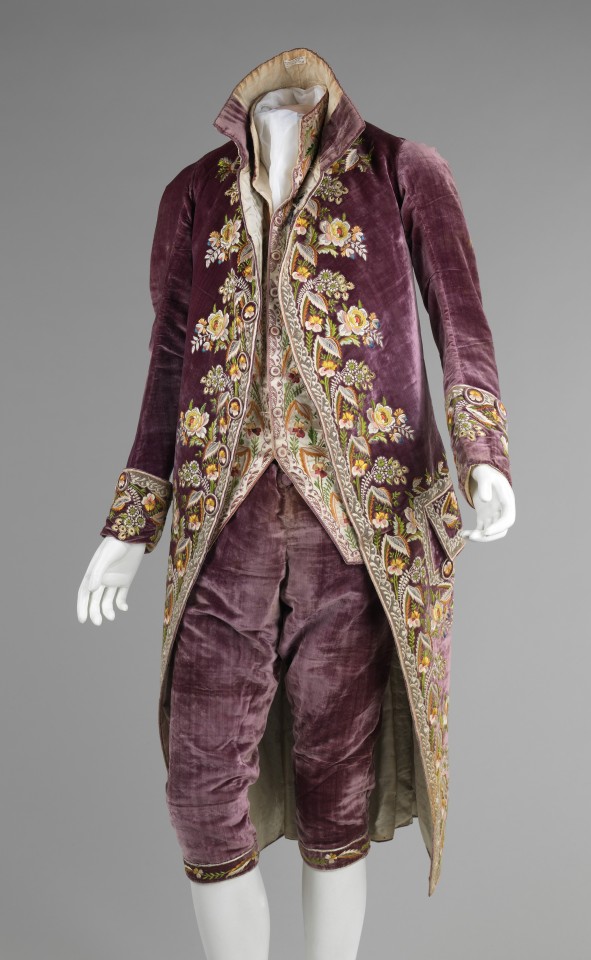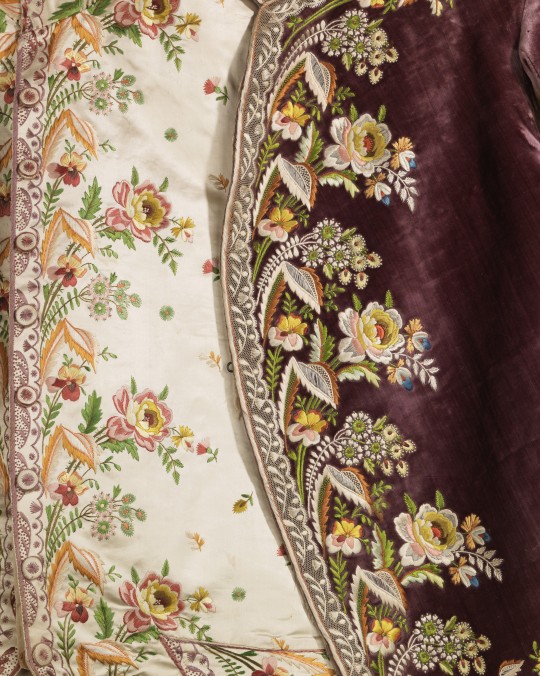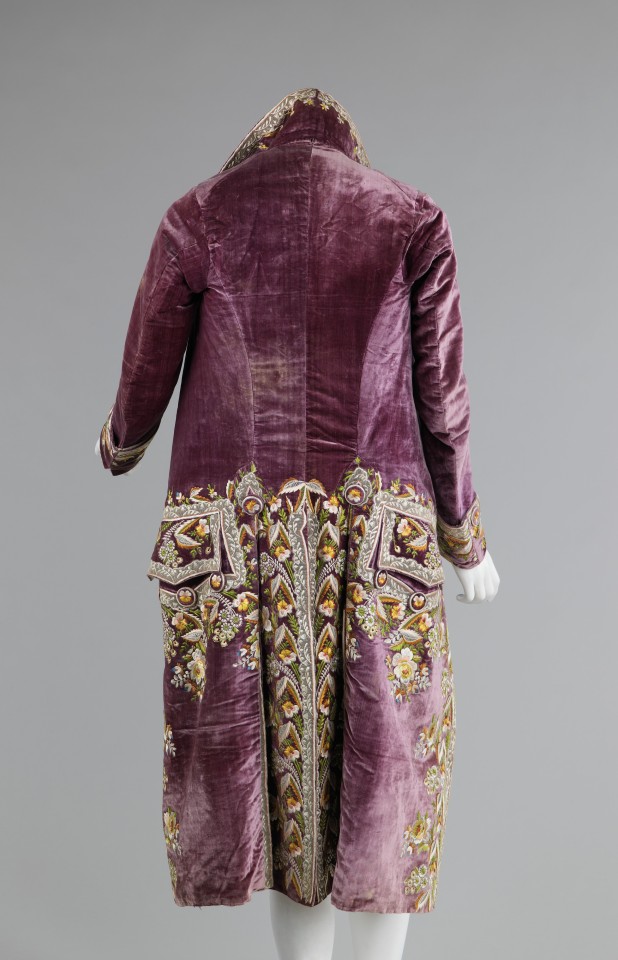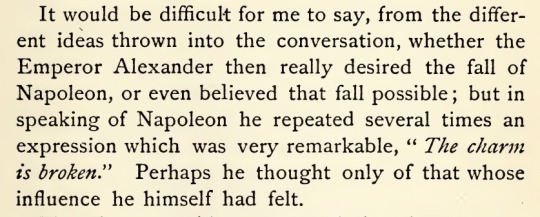#napoleon's court
Explore tagged Tumblr posts
Text
Napoleon's correspondance on Napoleonica.org. In full, and searchable.
Something interesting I just realized: It seems Napoleon often wrote to Junot directly, even when he could have gone through the channel of Berthier or Clarke. In this, Junot clearly was treated as somebody special, almost like family, at least clearly as a friend who had the right to receive letters directly from the emperor. It seems nothing would change that, not the defeat of Vimeiro, not the defeat of Gefrees. The last letter Napoleon seems to have written to Junot directly dates from 11 October 1809. Shortly after that, both Napoleon and Junot must have returned to Paris, removing the need to write letters at all. In early 1810, Junot and Laure left once more for the Iberian peninsula.
And from then on it seems there's - nothing. No personal letters anymore. All correspondence goes through the official channels. This will remain so until Junot's death.
#napoleon's generals#napoleon's court#jean andoche junot#you gotta wonder what event during junot's stay in paris in winter 1809/10 may have upset napoleon so#paris 1810
32 notes
·
View notes
Text

i have so much art to post of these two cuz i forgot that i could post on tumblr for like a few months. So expect some more. Yall gon eat well.
also... hmu in my asks about anything tf2 related i wanna hear what ppl gotta say idc what its about just Yap bro.
#happy valentine's day chat#gay fellas for today#engiespy#art#digital art#my art#tf2 spy#tf2 engineer#napoleon complex#practical espionage#i cant lie idk their tags very well#if these two ship names mean sum different im not liable in court you cant use this against me#tf2#team fortress 2#tf2 fanart#tbh you dont gotta see this as ship either like its just real fun yk#tag as ship or friends idc#spy x engineer#lmfao#call me nonstop tags nancy the way my tag lists be as long as the eiffel tower#alright i got in my french reference im good.#kiss the homies for me
180 notes
·
View notes
Photo



Court Suit
c.1810
France
This three piece suit is exemplary of skilled French embroidery and the silhouette of men's court wear during the time of Napoleon Bonaparte (1769-1821). Bonaparte revived the importance of court traditions when he crowned himself Emperor in 1804. This revival necessitated the recreation of acceptable court dress, which had been defunct since the elaborate and costly court of Louis XVI (1754-1793) prior to the French Revolution. The intricate embroidery pattern is intriguingly mimicked between the waistcoat and coat, reinforcing its status as a full suit. (The MET)
The MET (Accession Number: 2009.300.1001a–c)
#court suit#menswear#mens fashion#1810s#empire#19th century#purple#floral#embroidery#france#first empire#napoleon#1810#silk#the met#popular
3K notes
·
View notes
Text

Adding Alexander knew the layout of Napoleon’s place by heart because he checked the updated floor plans every month for 4 years to the Napalex lore
Source: Philip Mansel, The Court of France: 1789-1830, p. 148
#Alexander was the kind of man who blurred the lines between committed lover and dedicated enemy#and really#what more could you ask for from Napoleon’s antagonist?#Philip Mansel#The Court of France#Napoleon#Tsar Alexander I#napoleonic era#napalex#Tuileries
99 notes
·
View notes
Text
ok so while compiling the masterpost for the tournament I finally found an English version of Sophie de Choiseul-Gouffier memoirs so I wanted to share my favorite exchange from it between her and emperor Alexander

he’s like yeah Napoleon didn’t impress me at all. Did you notice his eyes, though? His clear piercing grey eyes?
And she’s like your majesty what the HELL are you talking about?
They talk a lot about Napoleon but I find these passages particularly interesting:

“to make one’s self feared, or to make one’s self loved”
I mean I already knew they were narrative foils in real life but to see it come out of Alexander’s mouth so blatantly is something else…
And yet another curious observation

seems not so immune to Napoleon’s charms as he would later have people believe. To put things in perspective this conversation takes place in Vilna after Napoleon’s retreat from Russia
#historical memoirs of the emperor alexander i and the court of russia#sophie de choiseul gouffier#the book is very interesting but should be read with several grains of salt#tsar alexander i#napoleon bonaparte#alexander i of russia
63 notes
·
View notes
Text
Love and marriage
Currently hanging out outside the Napoleonic era for a bit by reading Barbara Stollberg-Rilinger's biography of Maria Theresia of Austria. But I thought these general remarks on people's attitude towards love and marriage at the time might be interesting, as I think it was very much alive and kicking still at Napoleon's court [translated from page 255f]:
Since marriages were arranged according to family interests, [...] one could not make too high demands when it came to the couples' personal emotional attachment. On the contrary, being in love was considered the worst prerequisite for a lasting and good marriage. Passionate love and marriage were downright mutually exclusive. [...] Love was seen at best as a consequence, not a prerequisite for marriage, and even then this meant rather a friendly bond. Love in the sense of passionate erotic relationships, on the other hand, took place outside of marriage and was the subject of a refined aristocratic culture of gallantry. [��] Books taught the art of seduction, a sophisticated game of encouragement and rejection, dissimulation, siege and conquest. In this literary universe, women were divided into two categories: the coquettes, who "always say yes", and the precious, who "always say no". A coquette was to be tied to oneself permanently, a precious one was to be conquered. The latter was the most desirable goal for an ambitious galant homme; the Precious, as her name suggests, was considered the most valuable prey.
37 notes
·
View notes
Text
For shits and giggles, I fed the idea of Napoleon’s Marshals done Bridgerton-style into ChatGPT. It started kind of normal, and then went further off the rails deeper I got into the first season. I felt this gem should be shared with everyone. Enjoy. I will be posting one episode a day, if I can remember it.
Title: The Marshal’s Court
Genre: Romantic Dramedy (In the style of Bridgerton)
Setting: The First French Empire, Napoleon’s Marshals as the central characters
Season 1, Episode 1: “The Batons and the Blows”
Episode Synopsis:
The episode opens in 1804, a glittering ceremony at the Tuileries Palace, where the newly created Marshals of the Empire gather to swear their oaths and receive their Marshal’s Batons. This distinction marks their official ascent to the highest ranks of Napoleon’s army. Most of these men have fought together for years—some since the Italian campaigns—bound by loyalty, shared triumphs, and bitter rivalries.
Opening Scene:
The lavish atmosphere hums with tension. Each Marshal’s uniform is pristine, their batons shining in the candlelight as they await their moment of glory. But beneath the surface, there’s more than just military ambition on display—old grudges, simmering jealousies, and complicated friendships run deep. The camera pans to Marshal Davout, standing stiffly near Murat and Bessières, already casting suspicious glances at Murat’s flamboyant attire.
Marmont, denied a baton, leans in to Junot, whispering, “If Bessières can be made a marshal, then anyone can.” The camera catches Bessières overhearing the remark, his face darkening with wounded pride. Junot smirks, but there’s something unsettling about his grin—hints of his impulsive, reckless nature already showing, though his more troubling mental decline remains subtle for now. The men are unaware that Napoleon himself watches them closely from a corner, ready to intervene in their personal lives as much as their professional ones.
Lannes exchanges a glance with Bessières, their once-close friendship clearly fractured, a remnant of the Consular Guard budget scandal that saw them at odds. Lannes’ temper is barely restrained as he grips his baton, every movement purposeful and aggressive, setting the tone for his character as a man of passion and action.
Meanwhile, fan-favorite moments develop:
• Murat swaggers with confidence, already half in his mind imagining himself as a king, while Bessières watches him with conflicted admiration. Fans begin noticing lingering glances between the two, the first on-screen hints of the clandestine romance that has been a subject of fan theories for months. The ship, known online as Bessimu, starts gaining traction.
• Ney, standing near Soult, mutters something under his breath about Soult’s ambition, adding fuel to their historically documented rivalry. Soult glares but remains silent, plotting.
Junot’s erratic behavior hints at future struggles. He interrupts a serious conversation between Davout and Masséna, challenging them to a random duel of wit that leaves everyone bewildered and concerned about his judgment.
As the ceremony draws to a close, Napoleon makes his rounds, offering calculated words of encouragement (and veiled meddling) to each Marshal. He gives Lannes a sharp look, clearly intent on sending him to Portugal soon, much to Lannes’ irritation. Napoleon is later seen commenting to Duroc, his loyal aide, that “These men will tear each other apart without me. Just as I planned.”
Fan Reactions:
The episode sends fans into a frenzy. The Lannes fan club, already upset over his eventual historical fate, celebrates his brash, sword-banging diplomacy. #LannesLives trends on social media, with fans demanding a fictional rewrite to spare him from his historical death. Bessimu shippers are overjoyed by the subtle but unmistakable romantic tension between Murat and Bessières, creating a storm of theories about where their storyline is headed.
Online debates about the accuracy of Marmont’s snark, the portrayal of Soult’s cunning, and Davout’s icy demeanor dominate forums, with some fans pointing out that the show has taken slight creative liberties, but to thrilling dramatic effect.
Historical Easter Eggs:
• Marmont’s bitter comment about Bessières’ promotion references real-life tensions in the ranks.
• The Lannes-Bessières fallout, stemming from the Consular Guard budget scandal, is rooted in true events and marks a key point in their strained relationship.
• Napoleon’s meddling in his marshals’ lives, especially his push for marriages of convenience, is a real-life tactic he used to secure alliances, adding layers of historical drama to the romantic subplots.
Next Episode Teasers:
• Murat is seen leaving Bessières’ tent at night, a secretive and tense interaction that leaves viewers speculating on how their relationship will evolve. Will Bessières continue to wrestle with his devout Catholic guilt, or will his heart take the reins?
• Lannes is summoned by Napoleon to discuss his new diplomatic assignment in Portugal. Will Lannes’ fiery temper clash with his new role, or will his sword-banging diplomatic style pay off?
• Junot’s mental decline begins to surface in more overt ways—he challenges Marmont to a duel in a fit of impulsive rage. How will his peers react as his once celebrated impulsiveness becomes more concerning?
• The brewing rivalry between Davout and Bernadotte reaches new heights as Bernadotte schemes to undermine Davout’s position. Sparks fly at a banquet where both men attend with their wives.
• Historical nod: The Marshal’s next military campaign looms, with the possibility of them fighting side by side—or against each other.
#napoleon’s marshals#ai hell#napoleonic era#napoleonic shitpost#napoleon bonaparte#the marshal’s court
14 notes
·
View notes
Text
Thank you so much for the review! 💖
I think I had once checked the preview but had already been advised against the book, obviously rightfully so.
With regards to Euphémie, who may or may not have been Josephine's half-sister, I've recently come across an article on jstor. It's not clear if she was the daughter of a slave (which of course doesn't change anything about the fact both Josephine and later Eugène were slave owners). The interesting part ist that Euphémie may have been regarded as a real part of the family, as one of Josephine's many cousins mentions her and sends greetings in a letter during the time Josephine was living with her father-in-law. According to the article, she was Eugène's nanny and ended up marrying Eugène's old valet Lefebvre.
Currently reading a biography out of my usual area of interest and so far the author has cited three different quotes as "Source unknown"... What do you mean by "unknown"? Where did YOU got the quote from?? A dream???
#empress josephine#napoleon's family#napoleonic era#napoleon's court#the rose of martinique: a life of napoleon's josephine#euphemie lefebvre
38 notes
·
View notes
Text

Josephine Signing the Act of Her Divorce
Artist: Edward Matthew Ward (British, 1816-879)
Date: 1853
Medium: Oil on canvas
Collection: National Gallery of Victoria, Melbourne, Australia
Description
The Emperor Napoléon and the Empress Josephine signed the papers confirming their divorce on 16 December 1809. Josephine was unable to bear children; therefore the couple were incapable of ensuring the succession of the Bonaparte dynasty. Their divorce was thus more a matter of State than the diminishing of their mutual affection. Here, Ward focused on the noble sacrifice that Josephine in particular made for the apparent good of France. He also incorporated many symbolic references to Napoléon and has even extended this to the elaborate decoration of the picture frame.
#painting#couple#divorce#napoleon i#french emperor#josephine bonaparte#empress consort#french history#edward matthew ward#british painter#desk#women#men#french court#french culture#artwork
8 notes
·
View notes
Text

14 volume set of "Memoirs of the Courts of Europe"
#books#antique books#memoirs of the court of Europe#de valois#pompadour#de medici#charles ii#louis xiv#du barry#marie antoinette#Napoleon Bonaparte#josephine de beauharnais#berlin#st petersburg#lady hamilton
50 notes
·
View notes
Text

How the Wind Blows (Reader x Suitor)
Suitor Obey Me: Asmo, Belphie, Diavolo, Solomon
Suitor Ike Pri: Jin, Leon, Rio, Alter!Keith
Suitor Ike Vamp: Napoleon, Leonardo, Le Comte, Vlad
Suitor Court of Darkness: Fenn, Roy, Grayson, Lou
…
He loves me; he loves me not; he loves me…
The words float, carried away by the wind that caresses your hair. A flower is slowly plucked of its petals as you say these words. Your lover lays by your side in a field of wildflowers, eyes closed, lips curved upward.
He loves me not—a petal falls. He loves me—another petal falls.
One last petal remains. He loves me n—your voice catches. An arm snakes around your waist, pulling you down on top of him. He nibbles your ear, whispering on your skin.
I love you. Now and always.
#obey me shall we date#obey me nightbringer#ikemen vampire#ikemen prince#ikemen series#court of darkness#otome romance#roy invidia#leon dompteur#ikemen vampire napoleon
26 notes
·
View notes
Text
Thank you for this - how come my list of books to read gets longer after each of your posts? 😜
A look at three Fouché biographies
Over the past few months I've read three English-language biographies on Fouché: Joseph Fouché: Portrait of a Politician, by Stefan Zweig; Fouché: Unprincipled Patriot, by Hubert Cole; and Medusa's Head: The Rise and Survival of Joseph Fouché, Inventor of the Modern Police State, by Rand Mirante. These are a great example of how dramatically interpretations of a historical figure can vary from one historian to another (see also the difference between Alan Schom's interpretation of Napoleon vs. that of Andrew Roberts). And also a great example of why it’s a good idea to read multiple biographies on the same figure, to gain a more well-rounded perspective, instead of simply accepting/adopting that of the first biographer you read.
Zweig is a colorful writer and his biography is highly entertaining—he actually had me laughing out loud a few times—but his depictions of Fouché are so hilariously sinister and malignant throughout that at times it almost feels like a caricature. Zweig also utilizes the least amount of primary source material out of the three biographers--hardly any, actually--and so much of what he writes in regard to Fouché's motivations and thoughts come across as pure speculation or projection, but are always stated very matter-of-factly. Zweig presents a Fouché who chafes at the smallness of the roles he is given, driven by "unflinching selfishness." "When in power," Zweig writes, "he does not work for the State, does not work for the Directory or for Napoleon, but for himself." Aside from raw ambition, Zweig attributes most of Fouché’s actions to his sheer delight in engaging in intrigue for the sake of intrigue, an interpretation that seems to come straight out of Napoleon’s venting on St. Helena: “Intrigue was to Fouché a necessary of life. He intrigued at all times, in all places, in all ways, and with all persons. Nothing ever came to light, but he was found to have had a hand in it. He made it his sole business to look out for something that he might be meddling with. His mania was to wish to be concerned with everything.” Overall, Zweig’s book is worth reading, but out of the three English-language Fouché biographies, it’d be ranked third on my list.
Hubert Cole’s interpretation of Fouché is as different from Zweig’s as night is from day. The key word in Cole’s title is “Patriot,” and Cole’s central point is that Fouché, at each point in his career, was doing what he believed was in the best interests of France, even if that meant negotiating for peace with Britain behind Napoleon’s back, or pushing Napoleon towards a divorce and remarriage for the sake of shoring up the Bonaparte dynasty, or even (repeatedly) abandoning one master to serve another. This is the second one of Cole’s biographies I’ve read, and as most of you following me already know, I loved his dual biography on Joachim and Caroline Murat, the deceptively named The Betrayers, which is actually a very sympathetic look at the Murat couple. Cole is no fan of Napoleon and doesn’t really attempt to hide it, and maybe it’s because of this that he feels inclined to look deeper at the motivations and actions of those who ended up in opposition to Napoleon at various points (and who have therefore been demonized in history books accordingly). Cole draws heavily on primary sources, from letters and memoirs of Fouché’s contemporaries, to Fouché’s police bulletins (quoted at length throughout) to argue that “It is possible… that he was a sincere and moderately successful patriot. It is not uncommon in France for egoists to be hailed as patriots, and patriots condemned as traitors.” Far from the sinister, cold-blooded figure that haunts Zweig’s biography, or the “universally distrusted, feared, and hated” social pariah of Mirante’s, Cole's Fouché is charming, a welcome figure in the drawing rooms of Paris society, with a preference for making friends rather than enemies; nevertheless Cole does not deny that Fouché could also be ruthless, ambitious, and cunning. Cole also uses numerous accounts regarding Fouché by British, German, and Russian contemporaries, “in the belief that their prejudices, if national, are less personal.” Out of these three biographies, this one was my personal favorite, as I think it provides a more well-rounded picture of Fouché as a human being.
The primary focus of Mirante’s book is Fouché’s administration of the Ministry of Police, and the biography goes into great detail about the operations of the police in Napoleonic France, its vast network of informants, subversion of the press, surveillance of emigrés, and steady stream of information flowing in from all quarters. Fouché emphasized to his subordinates how one small detail or event could be “of great interest in the general order of things by its connections with related matters of which you are scarcely aware.” Like Cole, Mirante quotes frequently from Fouché’s police bulletins, as well as from memoirs of the era (though most of the excerpts are those hostile to Fouché). Unlike Cole, Mirante’s Fouché is driven not by any higher patriotism, but—especially after his humiliating flight from France in 1810—by a deep and abiding hatred of Napoleon, towards whose final destruction Fouché is willing to go to any length. Mirante provides more detail on Fouché’s exile and final years than either Zweig or Cole, one interesting aspect of which is the warm welcome Fouché received in Trieste from Elisa Bonaparte, who had been driven from power in Tuscany largely through Fouché’s machinations with Murat in 1814. Mirante ends the book with a critical look at Fouché’s dubious, ghostwritten “memoirs,” the credibility of which he is far more suspicious than Cole, who accepts the argument of French historian Louis Madelin that they are “largely authentic and accurate.” Mirante, on the other hand, is not convinced, and concludes that the memoirs are “highly assailable, at least quasi-spurious, and shrouded in controversy and deceit.” Mirante ends by drawing parallels between Fouché’s policing methods and those of the Gestapo and NKVD in the 20th century.
Overall I enjoyed all three of these for different reasons, and taken together they offer a more complete picture of Fouché. I haven’t gotten around to reading any French-language biographies on Fouché yet, but I do have a couple works on him by Emmanuel de Waresquiel that are definitely on my to-read list.
68 notes
·
View notes
Text
Round 1
No live organism can continue for long to exist sanely under conditions of absolute reality; even larks and katydids are supposed, by some, to dream. Hill House, not sane, stood by itself against its hills, holding darkness within; it had stood so for eighty years and might stand for eighty more. Within, walls continued upright, bricks met nearly, floors were firm, and doors were sensibly shut; silence lay steadily against the wood and stone of Hill House, and whatever walked there, walked alone.
-The Haunting of Hill House, Shirley Jackson
The human race, to which so many of my readers belong, has been playing at children's games from the beginning, and will probably do it till the end, which is a nuisance for the few people who grow up.
-The Napoleon of Notting Hill, G.K. Chesterton
Neil Josten let his cigarette burn to the filter without taking a drag.
-The Foxhole Court, Nora Sakavic
#books#polls#reading#round 1#tournament poll#the haunting of hill house#shirley jackson#the napoleon of notting hill#gk chesterton#the foxhole court#nora sakavic
59 notes
·
View notes
Text
I'm reading Napoleon and Johnny Marr biographies simultaneously and it's crossing wires, like ah yes remember that time Marr lost at Waterloo
4 notes
·
View notes
Text
Napoleonic Era Court Suit






Description from the Met:
By the early nineteenth century, menswear had become more somber in color and simplified in decoration, a direct influence of English styles. This suit, however, illustrates Napoleon's revival of extravagant ancien régime styles for wear at court. Politically and economically motivated, this revival was calculated to boost the foundering fashion-related industries in France.
#fashion#fashion history#napoleonic era#napoleonic#court suit#first french empire#french empire#19th century#france#history of fashion#historical fashion#1800s fashion#1800s#empire style#empire#19th century fashion#early 19th century#embroidery#embroidered#textiles#the met#silk#costume#costume institute#french#history#napoleon
168 notes
·
View notes
Text
Arguably, by the time a military battle happens, all the interesting stuff is already over (and has gone wrong). Talleyrand might not know how to lead an army but he might have done better with the stuff that led to the battle.
Or not. Depends on how much of his reputation is justified.
Talleyrand was smart but he also probably couldn’t have won the battle of austerlitz. But he also probably wouldn’t have ever gotten himself into a situation where you need to win the battle of austerlitz he would have simply gone home
37 notes
·
View notes